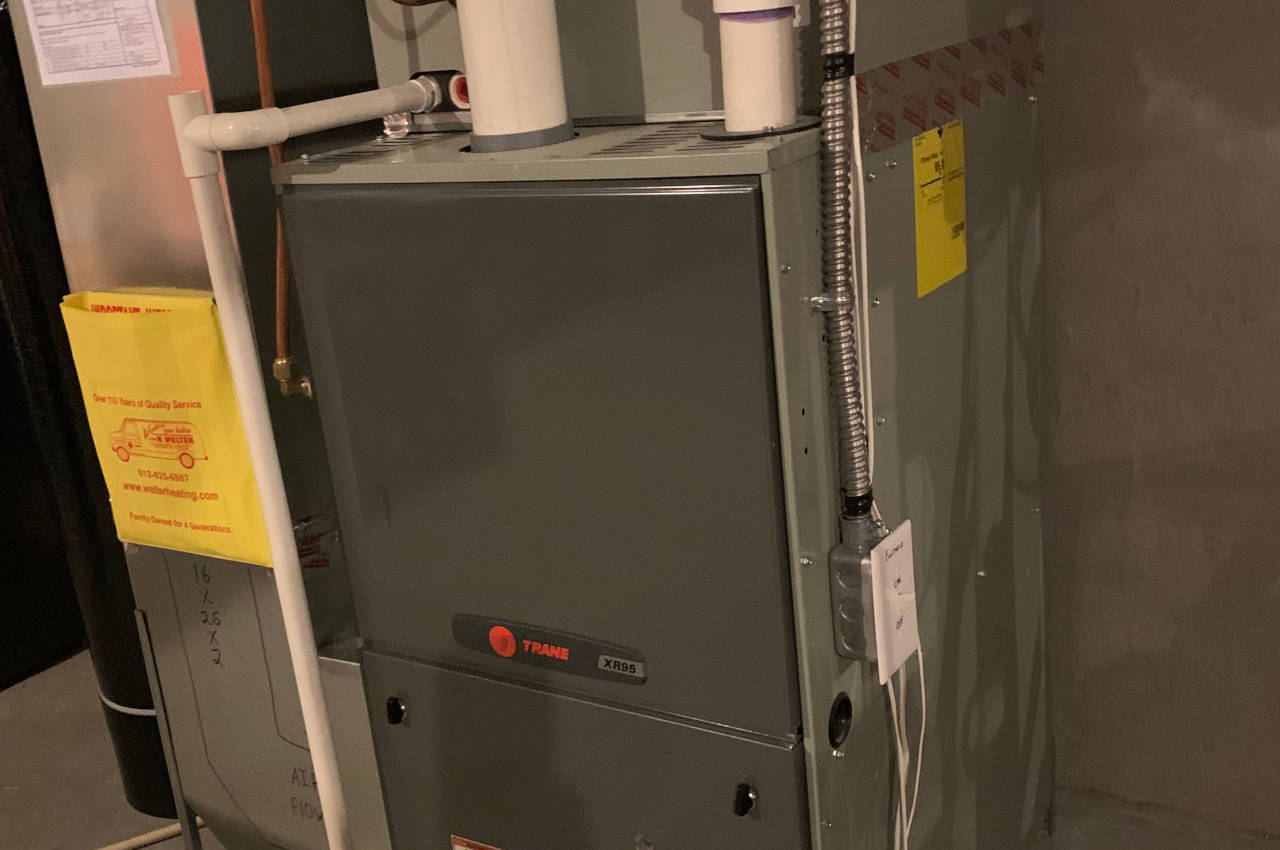Cost to Install a Furnace – 2025 Average Prices
The heating system in a home is a crucial mechanical system, and for many homes, it runs constantly during the cold months, keeping the home comfortable and warm. In cold climates, the home's heating system is necessary for survival and must be functioning to keep the indoor temperature above freezing.
If your furnace is older, not functioning properly, or not efficient enough for your needs, it may be time to buy a new one. Keep reading to learn more about the cost of a new furnace.
2025 Furnace Installation Costs
Calculate local project costs by entering your zip code.
Custom Location
| National Average Price | $6,250 |
| Typical Price Range | $5,000 - $7,500 |
| Minimum Price | $1,500 |
| Maximum Price | $10,000 |
Get free estimates from contractors near you.
On this page:
How Much Does a Furnace Cost?
The furnace is the backbone of most heating systems, and the cost can be significant to repair or replace. In most cases, a gas furnace installation in a 2,000 square foot home costs $5,000 to $7,500, assuming the existing ductwork and piping can be used with the replacement unit. The average price is usually around $6,250.
The average lifespan of a furnace is 15 to 25 years, so the installation is a long-term investment in your home. Learn more about the different types of furnaces and the factors that affect the cost before you purchase a new unit. Get several free estimates for a heating system installation.

Average Furnace Costs
| Fuel Type | Hardware Cost Range | Labor Cost Range |
|---|---|---|
| Gas | $2,000 – $10,000 | $1,500 – $3,000 |
| Electric | $800 – $3,000 | $1,000 – $2,500 |
| Oil | $2,000 – $7,500 | $2,000 – $5,000 |
| Propane | $2,000 – $10,000 | $1,500 – $3,000 |
Factors Affecting the Cost of a Furnace
Several factors may affect the cost of your furnace installation.
Furnace Size
First, the size of the furnace needed will affect the cost of the unit.
Homes in colder climates or with more square footage will need a larger heating system with more BTU output to heat, which will cost more. See our BTU calculator to find out how large your furnace should be based on your home’s geographic location and square footage.
Efficiency
The efficiency of your furnace will also play a big role in its cost. A furnace with an 80% efficiency rating will cost considerably less than one with a 98% efficiency.
However, the 98% efficiency furnace will likely last longer and give you lower energy bills over this time period. If you live in a cold climate, higher efficiency furnaces may be worth it. If you live in a more moderate or warmer climate, however, you may want to use something less efficient to save up front.
Labor Rates
Installation labor rates will affect the cost of the furnace installation. More experienced installers generally charge more for labor, while less experienced installers may charge less for labor.
Keep in mind that upgrading to a more efficient furnace will require more labor. Drains and vents may need to be added, which can increase the cost of the installation. Likewise, if you change fuel sources – such as getting a new gas line installed – this will also impact the cost of the labor and the installation.
Ductwork
If your home’s ductwork or piping needs to be installed, replaced, or enhanced, that could increase the cost of a heating system significantly.
Permits
A permit may be required to install a furnace and could cost an additional $100 to $200.
Removal
The removal of the old furnace is often expected, and the disposal may increase the cost of the installation. Expect costs between $200 and $350 on average for the removal and disposal of old furnaces, depending on the type.
Rebates and Credits
Rebates and tax credits may be available for your new furnace, which could offset the cost in your favor. Always be sure to ask your installer which credits are available.
Cost Benefits of Upgrading a Furnace
If your current furnace is working fine, there may be a good reason to upgrade.
Lower Maintenance Costs
If your current unit is near the end of its life, it may require more maintenance than a new unit, and in some cases, the repair bills may be more than a new unit would cost.
If your current furnace needs repair or if you’re facing significant maintenance costs, it may be worth considering an upgrade. Before replacing the unit, consider the cost of repairs to see if it makes sense to replace it.
Lower Energy Costs
If your current heating bills are comparatively expensive in your region, your current furnace may not be as efficient as it could be. Efficiency is measured by the annual fuel utilization, and the higher the rating, the better. The average efficiency rating is 80-98%.
Keep in mind, though, that electric furnaces convert nearly 100% of the energy used into heat, which makes them incredibly efficient. The cost of electricity, however, can make it prohibitively expensive to heat large homes or homes in cold climates using this method.
Always factor in the cost of the fuel you will be using when determining the type and efficiency of furnaces. It’s also important to note that while both propane and gas furnaces can reach efficiencies of 98% or above, oil is more difficult to make this efficient, and most will top out before 94% efficiency.
A unit that has a lower efficiency rating requires more energy to heat the same space, which may add significant costs to your monthly energy bill. Consider upgrading your furnace to a more efficient unit to reduce your monthly energy costs.
All pricing information on this page is based on average industry costs, and is subject to variance for project-specific materials, labor rates, and requirements.


